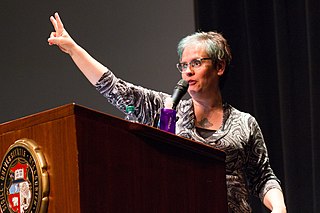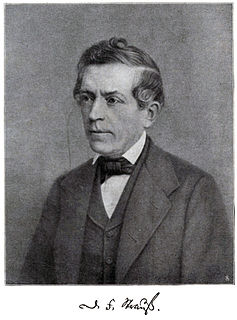A Quote by Susan Jacoby
That so many manage to accommodate belief systems encompassing both the natural and the supernatural is a testament not to the compatibility of science and religion but to the flexibility, in both the physical and metaphysical senses, of the human brain.
Related Quotes
One can truly say that the irresistible progress of natural science since the time of Galileo has made its first halt before the study of the higher parts of the brain, the organ of the most complicated relations of the animal to the external world. And it seems, and not without reason, that now is the really critical moment for natural science; for the brain, in its highest complexity-the human brain-which created and creates natural science, itself becomes the object of this science.
The last 100 years of research into the human brain...sees the brain as an organ that works by physical principles just like the other organs in the body...our emotions and higher callings, such as religion, as well as our grubby low-level physical systems like stereo vision and motor control, are products of a machine.
Religion and science, for example, are often though to be opponents, but as I have shown, the insights of ancient religions and of modern science are both needed to reach a full understanding of human nature and the conditions of human satisfaction. The ancients may have known little about biology, chemistry, physics, but many were good psychologists.
The necessary precondition for the birth of science as we know it is, it would seem, the diffusion through society of the belief that the universe is both rational and contingent. Such a belief is the presupposition of modern science and cannot by any conceivable argument be a product of science. One has to ask: Upon what is this belief founded?
In all modern history, interference with science in the supposed interest of religion, no matter how conscientious such interference may have been, has resulted in the direst evils both to religion and to science, and invariably; and, on the other hand, all untrammelled scientific investigation, no matter how dangerous to religion some of its stages may have seemed for the time to be, has invariably resulted in the highest good both of religion and of science.
If spiritual science is to do the same for spirit that natural science has done for nature, it must investigate quite differently from the latter. It must find ways and means of penetrating into the sphere of the spiritual, a domain which cannot be perceived with outer physical senses nor apprehended with the intellect which is bound to the brain.
It took me until my 40s to realize the five essential areas that are important to at least have a real dating chance. Obviously, beyond the physical compatibility, which is where we all start in junior high school, I think that intellectual compatibility and spiritual compatibility, emotional intelligence, and financial compatibility are important.
If there be a mind that, not perceiving in the narratives we have compared the fingermarks of tradition, and hence the legendary character of these evangelical anecdotes, still leans to the historical interpretation, whether natural or supernatural; that mind must be alike ignorant of the true character both of legend and of history, of the natural and the supernatural.
Now, science cannot completely exclude the possibility of supernatural explanation. It is possible though very unlikely that our whole world is controlled by elves. But supernatural explanations like these are simply never needed; we manage to understand the natural world just fine using reason and materialism.



































